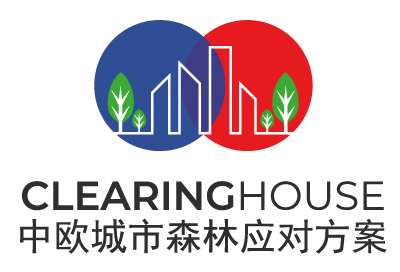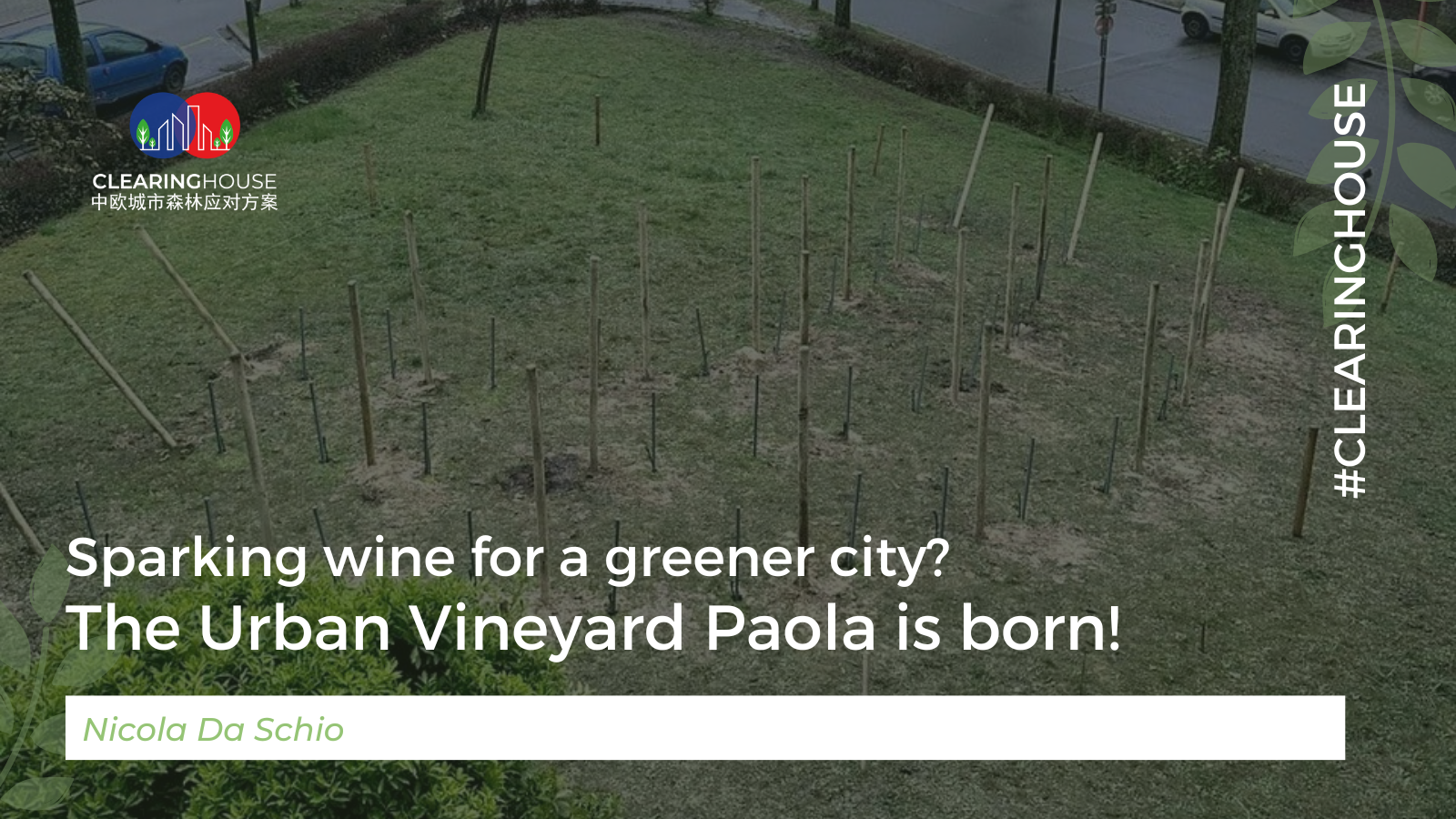
Sparking wine for a greener city? The Urban Vineyard Paola is born!
Discover new article by CLEARING HOUSE partner Nicola Da Schio.
The CLEARING HOUSE projet is not only there to trigger interesting research and compelling policy processes: to some extent it also inspires what the team members do as active citizens in their own neighbourhood.
In an earlier post on this blog, I already wrote how, starting from some research on urban green spaces I was working on at the VUB, I ended up joining hands with my neighbours to clean -up and reopen a hitherto abandoned park in the south of Brussels.
Here is a new story: about a year ago, two friends of mine came to me with an idea: what if we transformed a somewhat larger curb lawn in our neighbourhood into a collective vineyard, and started producing some good old sparkling wine?
So we did it: we started talking about our plan to our friends, to the neighbourhood committee and CLEARING HOUSE colleagues; we made an agreement with the municipality and exchanged with their green spaces managers; we had the soil analysed for pollution and quality; we invited a local non-profit managing a collective nursery to come and see; we went on a field trip to see a similar project a few kilometres from Brussels; we established an association of urban winegrowers…. And last weekend we put our first 40 seedlings on the ground 🌿🌿🌿. The urban vineyard Paola is born!
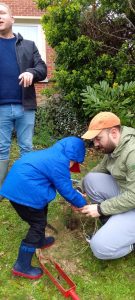
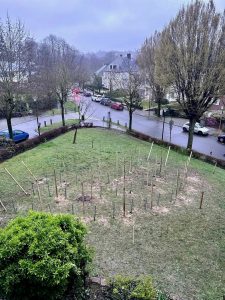
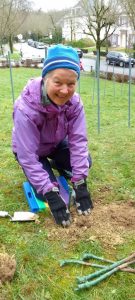
The vineyard is located in Uccle, Belgium. It owes the name to its location, the Princess Paola avenue. But we also liked its latin etymology, Vinea Paula : small vineyard. It is really about us! The parcel is a bit more than 200 square meters , on a south-ward facing gentle slope. The area is quite green, though I would still call it an “urban” vineyard: just about 6 km from Brussels Grand Place, it is in the middle of buildings and houses, in a spot which -I guess- remained empty because of an oversight of real estate speculators.
The objectives of the project are different, and everyone who will join us will add new ones. Using the UFNBS framing, this is probably about working with the cultural ecosystem services of urban trees. The vineyard will be a space where the local community will meet and exchange, that will contribute in increasing the sense of belonging to the neighbourhood, and will allow for exchange across people of different generations and walks of life. The forty vines and what will grow around them will also contribute to increasing the biodiversity of what is now just a very manicured lawn. Personally, I also like the idea of experimentation, and am curious to see how this “residual space” can be activated by passers-by and take a life of its own, creating links among people and places all across the vine-grape-wine lifecycle.
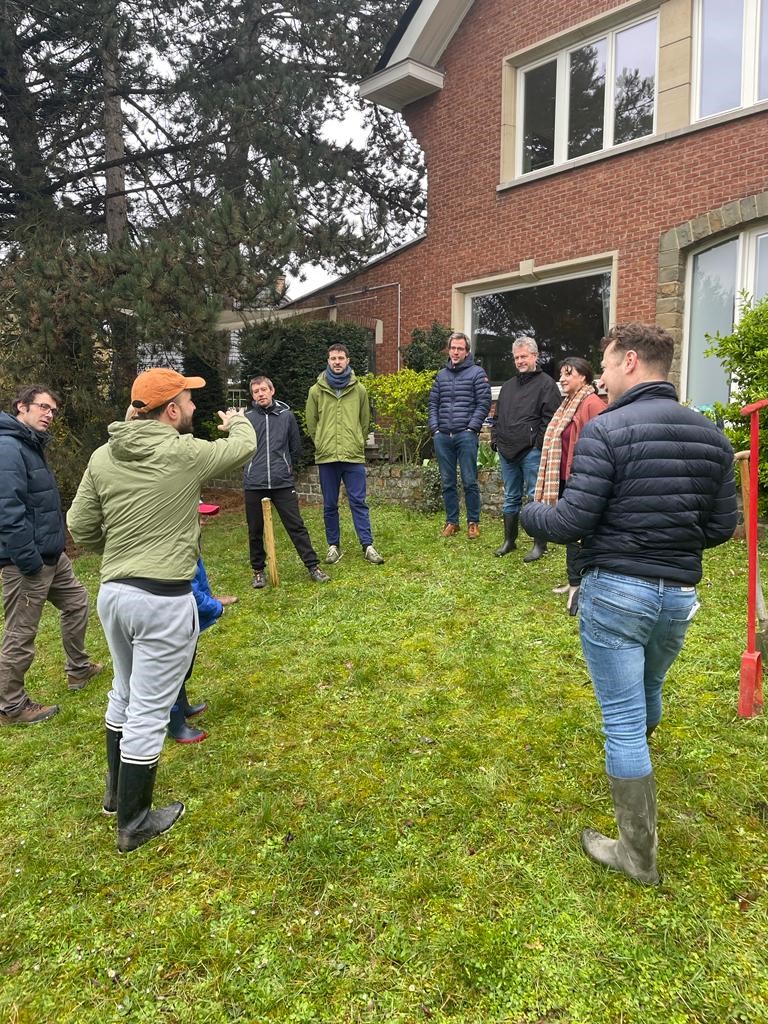
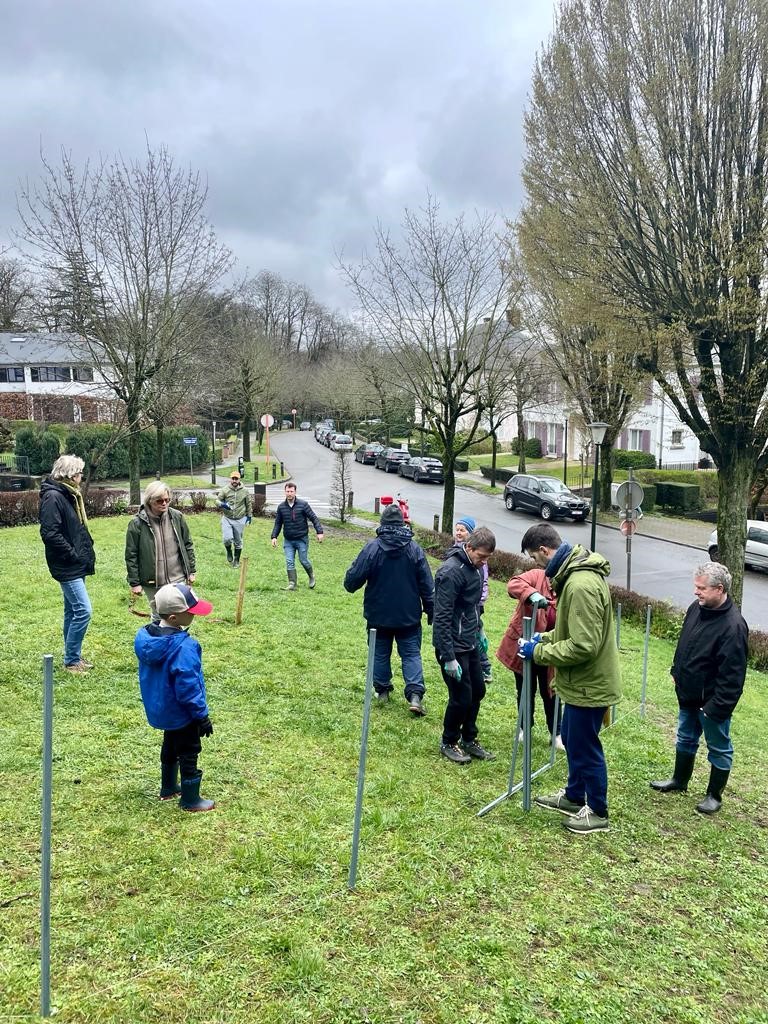
But why wine? Whether one drinks it or not, the culture of wine has brought people together for centuries, and it continue doing it now. Most people I talk to are intrigued by the project, including decision makers, and our group keeps increasing. Belgian culture of wine is probably not very famous, but this does not mean that our project is exotic: there used to be a castle in the area until it was demolished in the 1950s, and the records speak of a vineyard in its domain. We cannot be sure, but given the topography and the exposure to the sun there are some chances that we are planting our vines in the same location…
Though it is not the first activity, last weekend was surely the moment our project materialised and literally toook its roots, in the soil and in the neighbourhood. We decided together on the shape of the rows and marked the poles. We stretched the strings to guide the planting. We planted the seedlings and finally put the support poles in place. Participants included 30-40 people of all ages, from different backgrounds. For some it was their first time planting vines while others already had a quite long experience of it. Everyone contributed in their own way, and hopefully went home with a good memory. In the next months we’ll organise a proper inauguration, carry on with all activities that are needed to make the vineyard grow, and in a few years we hope to have the first glass of wine.
To know more, visit the facebook page of the Vignerons Urbains
